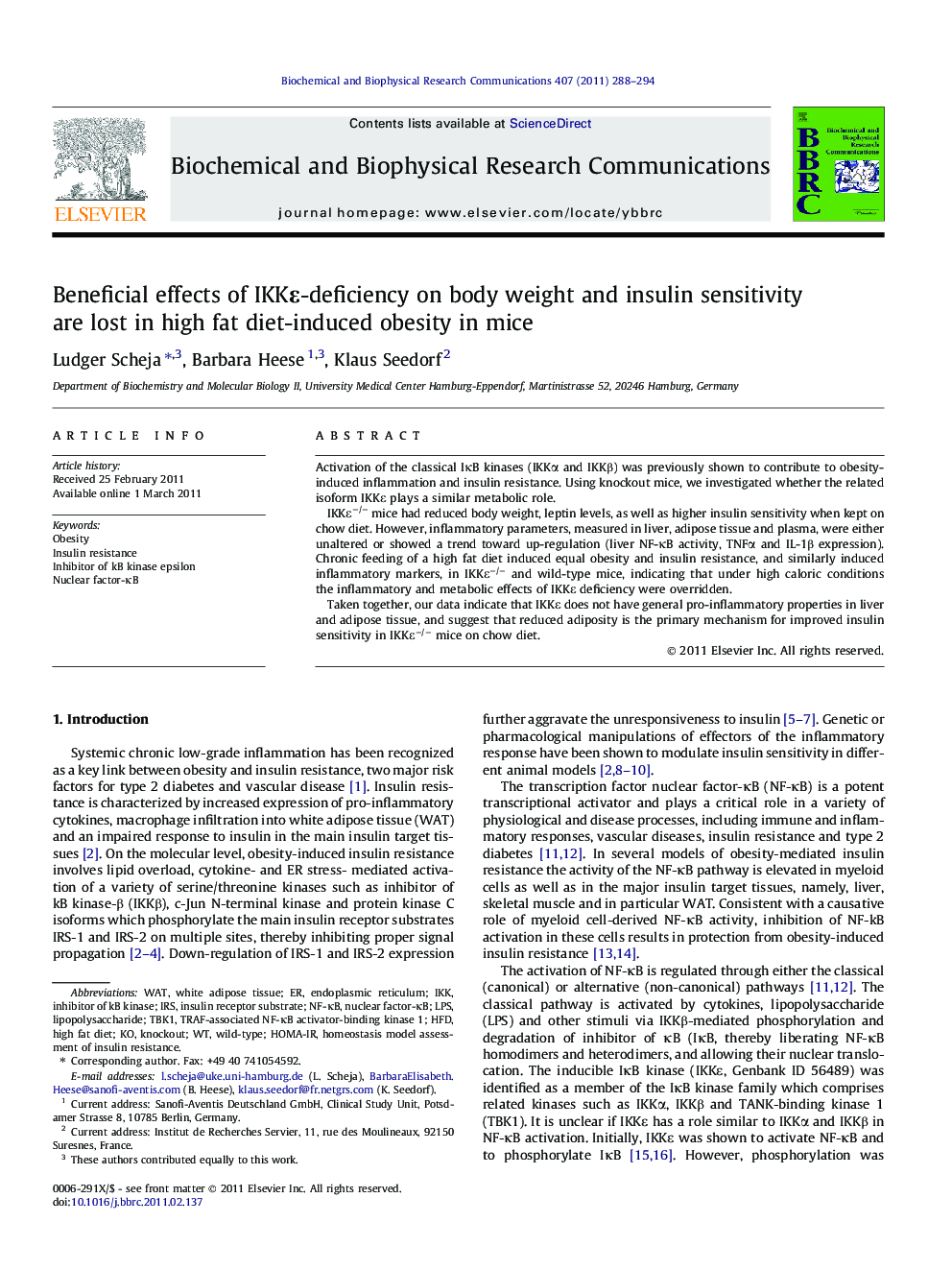| Article ID | Journal | Published Year | Pages | File Type |
|---|---|---|---|---|
| 1930809 | Biochemical and Biophysical Research Communications | 2011 | 7 Pages |
Activation of the classical IκB kinases (IKKα and IKKβ) was previously shown to contribute to obesity-induced inflammation and insulin resistance. Using knockout mice, we investigated whether the related isoform IKKε plays a similar metabolic role.IKKε−/− mice had reduced body weight, leptin levels, as well as higher insulin sensitivity when kept on chow diet. However, inflammatory parameters, measured in liver, adipose tissue and plasma, were either unaltered or showed a trend toward up-regulation (liver NF-κB activity, TNFα and IL-1β expression). Chronic feeding of a high fat diet induced equal obesity and insulin resistance, and similarly induced inflammatory markers, in IKKε−/− and wild-type mice, indicating that under high caloric conditions the inflammatory and metabolic effects of IKKε deficiency were overridden.Taken together, our data indicate that IKKε does not have general pro-inflammatory properties in liver and adipose tissue, and suggest that reduced adiposity is the primary mechanism for improved insulin sensitivity in IKKε−/− mice on chow diet.
► IκB kinase epsilon (IKKε) may contribute to obesity, insulin resistance, inflammation. ► IKKε knockout did not reduce inflammatory markers in mice. ► IKKε knockout mice on chow diet were more insulin sensitive than controls. ► High fat diet induced equal obesity in IKKε knockout and control mice. ► Obese IKKε knockout mice were as insulin resistant as controls.
